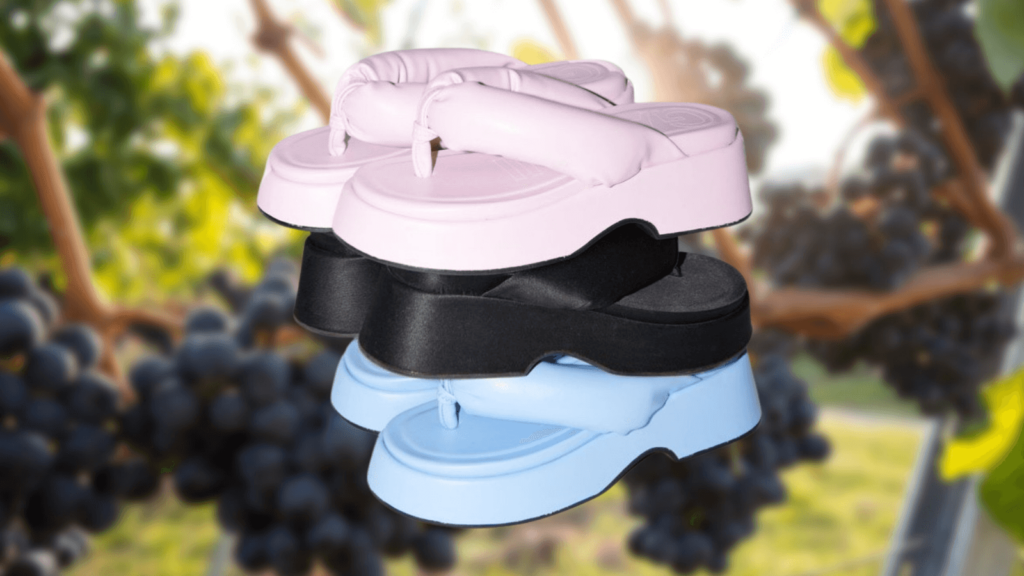Danish fashion brand Ganni has announced it will phase out animal leather by 2023 in favor of plant-based alternatives and will release grape leather shoes in 2022.
Founded in 2000 by Frans Truelsen, the Scandinavian street-style brand has gained a cult following. As a luxury brand with lower prices, Ganni has become famous on Instagram through the hashtag #GanniGirls.
Ganni has now announced it will phase out leather products, and gradually remove them entirely from its range.
Phasing out leather for vegan alternatives
Taken over by Ditte and Nicolaj Reffstrup in 2009, the brand is committed to environmental responsibility and progressive social activism. The owners want Ganni to set the tone for future generations.
“We’re phasing out leather completely by 2023, as it conflicts with our efforts to minimise our impact due to high levels of methane emissions from the livestock,” said Nicolaj Reffstrup.
He said: “Selling leather products, although highly profitable, will soon be as outdated as smoking on TV.”
Ganni does not label itself as a ‘sustainable’ brand. The company recognizes the conflict between fast fashion and sustainability. Instead, Ganni focuses on becoming more responsible over time while minimizing its social and environmental impact.
As its first step in the move away from animal leather, Ganni has partnered with Vegea. This Italian manufacturer creates plant-based alternatives. These are used for fashion, furniture, packaging, and transportation.
Grape leather
In collaboration with Italian winemakers, Vegea developed a process to transform waste grape skins, stalks and seeds into an alternative to traditional leather. Vegea grape leather consists of 55 percent vegetable oil and grape bio-compound and 45 percent water-based polyurethane. Luxury car manufacturer Bentley recently collaborated with Vegea, creating an all-plant leather interior for its new concept car.
Ganni will offer eight pairs of shoes made from this material, so grape-based chunky loafers, flip flops, and sliders form part of their spring-summer 2022 collection.
“Introducing Vegea, a plant-based alternative made from agricultural waste, is a step in the direction towards a more responsible collection,” said Reffstrup.
Vegan moves in the fashion industry
The transition to leather alternatives follows similar moves in the fashion industry. A Karl Lagerfeld sustainable accessories collection for spring 2021 used vegan cactus leather. Hermes is using a mushroom leather alternative. Tommy Hilfiger has introduced sneakers made from recycled apple peel fibres.
French-based company Kering, owner of 12 luxury brands including Gucci and Saint Laurent, announced in September that they will stop using animal fur from 2022. Kering is also now producing products across their brands made from Mylo, a mushroom-based leather.
A Vegan Society report, The Rise of Vegan Fashion, saw nearly 50 percent of customers surveyed wanting to see more vegan verified clothing. So, the growing focus on sustainability and ethics in fashion will fuel demand for cruelty-free and low-impact alternatives to leather.






